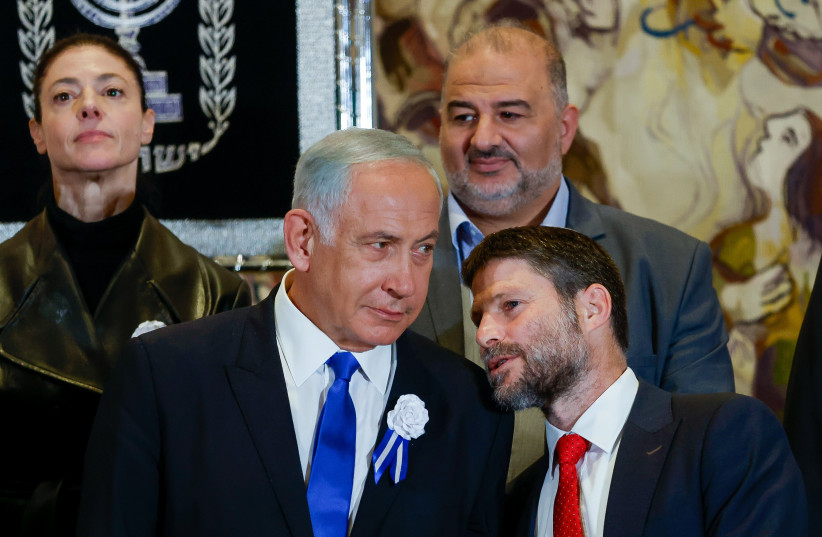IDF Chief of Staff Lt.-Gen. Aviv Kohavi "grossly intervened" in politics when he called incoming prime minister MK Benjamin Netanyahu last week to receive clarifications about the incoming government's intention to move the authority over certain units to ministers Bezalel Smotrich and Itamar Ben-Gvir, Smotrich said on Tuesday.
"Whoever wants to keep the IDF unified as the army of the people, in consensus and outside of politics, needs to legislate a minimum ten-year cooling off period for chiefs of staff," Smotrich added. Currently, IDF generals are obligated to wait a minimum of three years before running for public office.
According to the IDF's Spokesperson's Unit, Netanyahu and Kohavi agreed that any decisions regarding the IDF will be made after the military presents the ramifications and implications of these decisions. Netanyahu refused to comment on the phone call.
Ben-Gvir later agreed with Smotrich.
"In recent years we saw a parade of chiefs of staff who quickly ran for politics at the end of a short cooling-off period," Ben-Gvir wrote on Twitter. "The short cooling-off period brought a feeling to the public that there is politicization in the IDF. There is real concern that the conduct of a chief of staff who wishes to join political life will be geared towards scoring points with the public that will assist him politically," Ben-Gvir said.

Outgoing ministers criticize Smotrich
Smotrich's comments drew criticism from outgoing ministers.
"Whoever wants to keep the IDF unified as an army of the people does not legislate a draft-dodging law, does not dismantle the defense ministry and the IDF into subdivisions and does not intervene in the appointment of IDF officers," Defense Minister Benny Gantz responded on Twitter.
"I support the chief of staff, who is the supreme commander of the army and bears responsibility. The chief of staff is not a hall monitor who just follows orders.
"It is our duty to voice our professional opinions facing the steps that harm security and the IDF's conduct. The attempt to terrorize the current and next chief of staff and stifle open and critical debate is worrisome and dangerous," Gantz said.
Outgoing Finance Minister Avigdor Liberman wrote on Twitter, "As the person who appointed Aviv Kohavi to chief of staff, I can say that he is an outstanding commander, void of political considerations, a person who dedicated his whole life to Israel's safety and works night and day for the success of the IDF and the state. Any lashing out or damage to the chief of staff is damage to national security," Liberman wrote.
Former chief of staff and National Unity number three Gadi Eisenkot said later on Tuesday, "This is systematic, making the heads of the security organizations a target for attack. The same people who attacked the head of the Shin Bet a month ago and the police commissioner two weeks ago, are the ones who are attacking the chief of staff today. Inappropriate [and] unacceptable."
